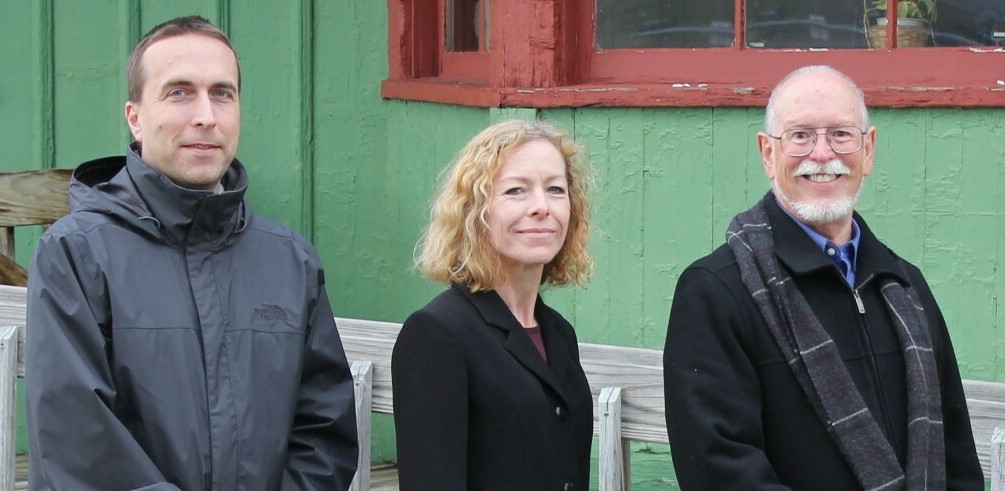Local voters will see “Real Democracy 4 Vestal,” an alliance of three good-government advocates running for elected office, on their ballots this November.
All three candidates — Maria Sexton, Robert Greene ‘09 and Glenn Miller ‘78 — defeated incumbent town officials in June’s Democratic primary. Sexton overcame John Schaffer, the current town supervisor, 689 to 302 and Miller and Greene won 663 and 641 votes respectively, defeating Patty Fitzgerald, an incumbent town councilwoman who won 425. Real Democracy 4 Vestal candidates have called for greater transparency and respect in government, as well as enhanced communication and input from community members, professionalism, fairness and encouraging volunteerism.
Greene said that feeling a lack of respect at town meetings motivated him to run for office.
“I’ve heard a lot of complaints from neighbors and others about not feeling heard by the town at meetings,” Greene wrote in an email. “I’ve had my own issues with just calling to understand code. I feel these issues need to be addressed and the town personnel and elected officials need to understand their community is important.”
The candidates also emphasized their goal to mitigate potential flood damage in Vestal, where 38 percent of properties are at 26 percent severe risk of flooding and many have previously faced flood damages. In 2011, widespread floods caused over 24,000 Broome County residents to evacuate and several to lose their homes. To prevent future damage, Sexton said that she would raise preexisting flood walls and cited Owego, a nearby town, as an example of successful flood prevention.
“This project is doable and is viable,” Sexton said. “Owego did just that, and Owego’s not far from here, and they got devastated. They separated [the mitigation] out, they had viable options, they resubmitted and now have their flood mitigation in process, they’re now getting full funding … It’s a no-brainer that we look into that because we have to get funding for it — but at the minimum, we need to try. There’s so much proactively we can do.”
Real Democracy 4 Vestal’s platform also highlighted housing assessments as a major issue. New York state requires all houses in a community to have their values assessed at a uniform rate of the market value. In Vestal, houses are kept at 100 percent equalization — or full median market value. Houses are reassessed annually and are subject to change to keep up with the market, potentially leading to increased taxes.
Despite losing to Sexton in the June primary, incumbent Town Supervisor John Schaffer is running for his fourth term as the Conservative Party candidate. Listing past accomplishments that benefited students, he cited lowering taxes and funding projects for Vestal residents as priorities for his next term.
“The town has been a partner with [Binghamton University] in the unprecedented development in the town,” Schaffer wrote in an email. “For example, supporting student housing programs, commercial development and providing a safe environment.”
He added that keeping 100 percent equalization makes assessments equitable, lowers taxes and increases property value. However, Sexton claims the policy does not reflect a home’s true value and forces residents to pay undue taxes. Upon election, she plans to reassess houses and potentially bring the percentage down.
Miller expressed his desire to foster a stronger relationship between the Vestal Town Council and University students.
“I know the potential this place has,” Miller said. “I’ve seen how large it’s gotten, and how complex it’s become and how diverse it’s become. It’s amazing. And to sit back and say, ‘Well, they’re over there and we don’t like having all the students run around all the time, so we’re gonna let them be there but we’re not happy about it’ … I’m thinking we’ve got to let that go.”
Eli Klein, an intern on Sexton’s campaign and a senior majoring in political science, stressed the importance of students participating in local elections.
“If BU students care as much about politics as their Instagram stories illustrate, there should be nothing more they want to do than get involved in local politics, [which are] the foundation of politics,” Klein wrote in an email.



